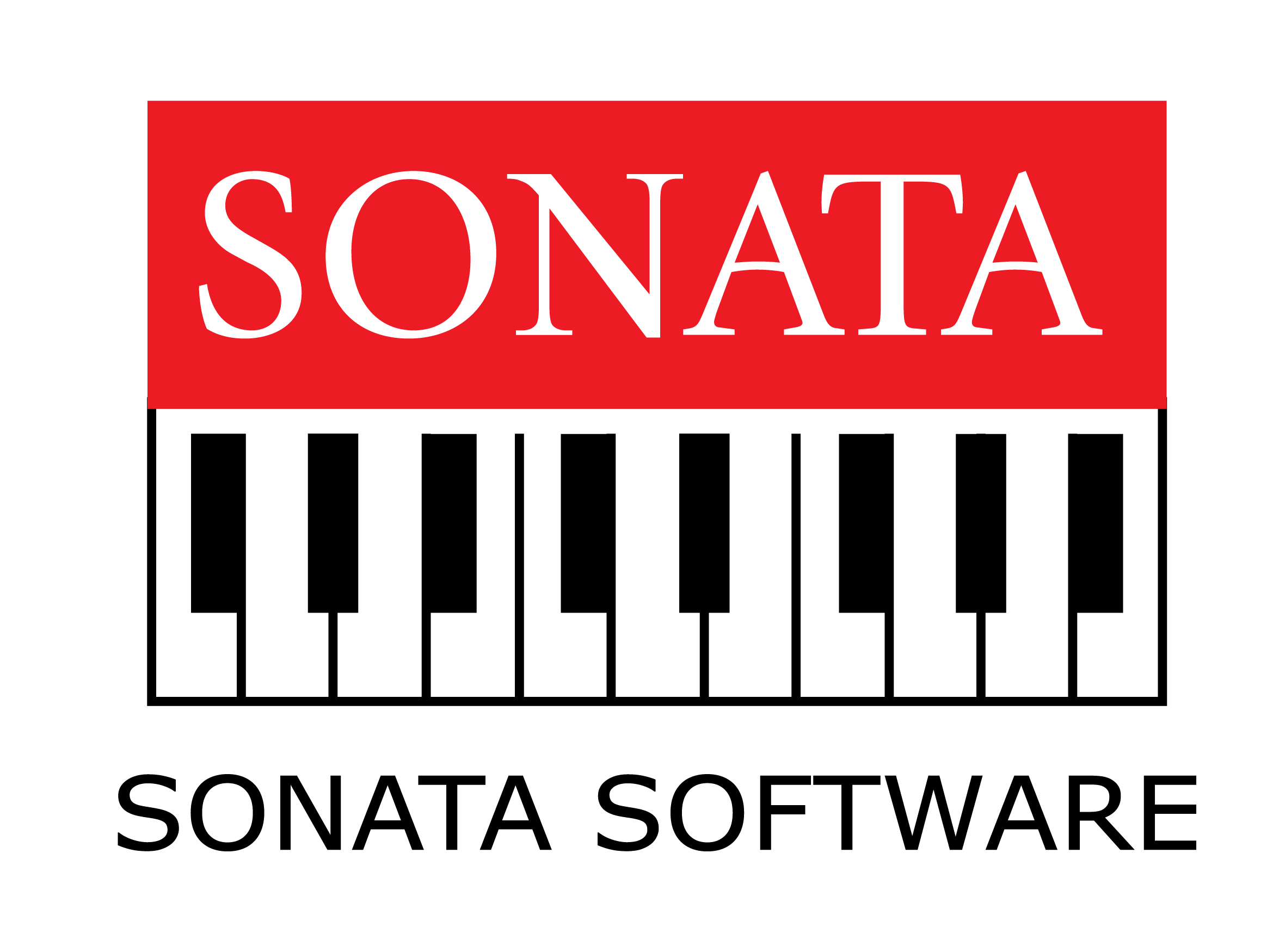UN Side Event: Accessing the Digital World with Deafblindness
Sense India hosted UN CSocD59 side event on the 15th of February, 2021 on “Social Development of Persons with Deablindness in South Asia.” It opened the platform to people with deafblindness from India, Nepal and Bangladesh to talk about their experiences with technology. These young and motivated individuals highlighted the gains of technology, the obstacles they faced, its possible solutions and how the State and Tech companies can do their bit to #LeaveNoOneBehind.
The side event was introduced by Shrutilata Singh, and the panelists included Asha Patwal- India, Pushpa Raj Rimal- Nepal, Farjana Yesmin- Bangladesh, Sakti Prakash Lamichhane- Nepal and Motiur Rahman- Bangladesh. Ishan Chakraborty- Moderator.
Why is Accessibility in technology needed?
Accessibility in technology is important. Accessible technology provides the tools to access information for people with a range of disabilities. Tools like having a screen reader, magnifier, changing the size of texts, changing contrast are not just tools of communication, but are tools of opportumities too.
People with deafblindness from India, Nepal and Bangladesh got a golden opportunity to talk on the United Nations Commision for Social Development platform about living in a digital world, coping with learning new technology, the challenges they face and how State and tech industries can do their bit to #LeaveNoOneBehind.
Every industry that is in need of human resource has understood the opportunities it gains by including everyone. By not making spaces whether physical or digital available to people with complex disabilities like deafblindness they loose out on talent.
Assistive Technology - an obstacle race
Assistive technology has jumped over major obstacles to provide information for people with vision and hearing impairement. But lately, it seems to have stumbled over an obstacle to make it affordable to anyone in need.
Asha Patwal, a panelist from India stressed on the best parts of internet and living in a digital world. During the lockdown technology became a blessing. She said, “Technology has been a blessing in the pandemic. It helped me connect with my family and friends. My education moved online and learning didn’t stop. I could look up tough words, post on social media and could also shop online. I learned net banking and kept up with local and global news.” Asha expressed that though it made things accessible that were not before, it is barely enough. She suggests that gaps need to be filled by tech companies and governments to make technology available and accessible.
In order for technology to be accessible, it needs to reach the people who need it.Pushpa Raj Rimal from Nepal said, “The most important senses are seeing and hearing. So, when both these senses are gone the alternative is to use technology.” Though technology has made the lives of people with deafblindness easier, the troubles in acquiring them is not lost on him. He says, “The devices are not easily available in developing countries. Many tech companies build their devices by the living standards of people in developed countries.”
Ishan Chakraborty who moderated the side event highlighted the sorry state of affairs of education in the country. As a person with deafblindness pursuing academics to its heights, Ishan emphasized the issues he deals with. Most of the books that he needs to help him with his research are not available in accessible formats braille, large print. Many of them are written in the local language and a lot of time and effort is needed to translate it.
Farjana Yesmin from Bangladesh said that as a person with deafblindness going through the pandemic it was a boon to be using applications like Facebook and WhatsApp to be in constant touch with her loved ones. How shopping online made things easier and safer.
Sakti Prakash Lamichhane said, “My life has become easier with technology. I can manage my money with e-banking. I can video call my friends. I can access news and information on the internet. Since I can do most of it through my phone, I save on a lot of time and money.
Motiur Rahman from Bangladesh said that though the benefits of technology especially that of a smartphone are endless it be tapped into if one doesn’t have the means to own the technology. He says that as he does not have a smartphone he is lagging behind in his class. Motiur also pointed out that location plays a big role in accessing technology. Most of the people with deafblindness in India, Nepal and Bangladesh live in remote and rural areas where advanced technological devices cannot reach and be afforded.
Assistive Technology - A Charity Model?
While moderating the session Ishan stressed on why technology should be away from the charity model, “We have been talking about how the State should take the responsibility of distributing technological devices, but here I want to say that let it (technology) not be a charity model of disability. We want it to be recognised as our Right to access technology. It should move beyond the narrow arena of tokenism. It is our Right to access the digital world. An attitudinal change along with an infrastructural one must be brought about in the field of technology. They forget that we are customers of technology as well.”
Technology has to become another sense. It cannot be a replacement or an adjustment of the senses people with deafblindness have lost. As technology continues to evolve it needs to become more accessible in order to optimize the talents and opportunities of people with deafblindness by bridging the communication gap.
Solutions:
- Devices are expensive
Cutting down the cost of devices like smartphones where the state can take the responsibility. - - Making technology available
The State should take the responsibility of making technology accessible to people with deafblindness, even in remote areas. < - Training
It is necessary that people with deafblindness are provided training for any new technology that could make their lives easier. It is the only way of knowing about new technology and practice it.
Bio of the Panelists

Ishan Chakraborty- Panel Moderator
Ishan Chakraborty is an Assistant Professor in the Department of English, Jadavpur University and is also pursuing his PhD there. He has been awarded the Abul Kashem Rahimuddin Samman in 2019 by the Government of West Bengal for his contribution in the field of elocution and Bengali poetry recitation. He has also received the State Award for the Empowerment of Persons with Disabilities 2019 in the category of Role Model
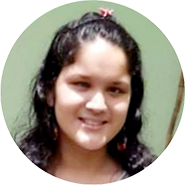
Asha Patwal, India
Asha Patwal is a 17 year old girl who has won many awards for painting at the State and National level. Born with cataract and later suffering from Meningitis, she lost her hearing completely and has vision in one eye. In 2014, she was selected to attend a deaf camp in Washington DC for 21 days. In 2021 she participated in the United Nations World Data Forum where she shared her strong views about the lack of data on deafblindness in India. Her video was among the three winners on that platform.
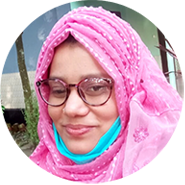
Farjana Yemin, Bangladesh
Farjana is 21 years old. She has mild vision and mild hearing loss. She studied in school and has passed secondary education. Now she is married and living with her husband. Currently she is a homemaker but she is going to enrol in a government run vocational training course on Computer Science. She wants to be financially independent.
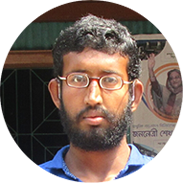
Motiur Rahman, Bangladesh
Motiur is a 22 year old adult with deafblindness (moderate vision loss and partial hearing loss. He has passed his secondary education certificate this year and is now admitted in a local college for higher secondary education. He recently completed his 1 month vocational training on Agriculture. He is also involved in cow rearing along with his mother from where he meets his educational expenses.
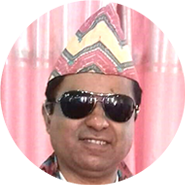
Pushpa Raj Rimal, Nepal
Pushpa Raj Rimal had congenital blindness and about ten years ago he had problem with his hearing. He is completely blind and hard of hearing. Now as a person with deafblindness he established an organization called Deafblind Association Nepal and became the Founder President of the organization. Since then he has been working for the rights of people with deafblindness. He was elected as a member of the Executive Council of the World Federation of the Deafblind in 2018. He was awarded with the Jagadish Patel Award established by Sense India on the occasion of ICEVI conference in Kathmandu in February 2020 as the recognition of his contribution to the persons with deafblindness in Nepal.
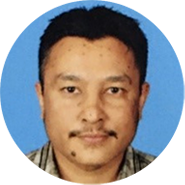
Sakti Prakash Lamichhane, Nepal
Shakti Prakash Lamichhane was congenitally hard of hearing and started losing his vision at the age of 13 due to Usher type 2. Now he has obtained yellow ID card stating deafblindness. He was Founder General Secretary of Deafblind Association Nepal in 2012. Apart from his hearing aid, he uses speech, Nepali sign language, tactile communication and large print for communication. He has completed intermediate level with commerce and accounting. He has basic knowledge about Braille but has not been using in practice.
Author - Sonia Gervasis
Communication-Officer, Sense International India



